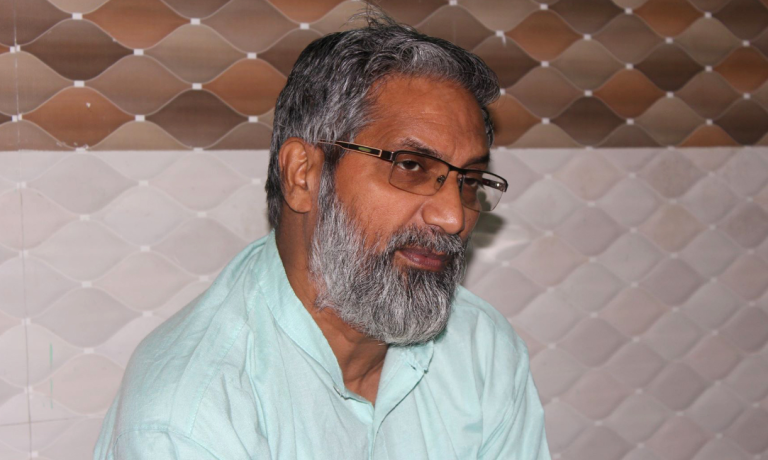MUMBAI — Following the mass indictment of 42 people in India for fraudulently converting members of poor and tribal communities to Christianity, a Catholic expert warns that recent elections in several Indian states, which saw strong gains for the nationalist Hindu party of Prime Minister Narendra Modi, could worsen the situation.
Indeed, Father Anand Matthew has suggested that in light of accelerating repression under India’s anti-conversion law, the country’s Christianity may need to return to the model of the early Church made up of small communities Christians led by lay people, able to fly under the government’s radar. authorities.
“Anti-Christian intolerance and harassment have already been severe, and this victory does not bode well for religious freedom in these states,” said Mathew, a prominent social activist and member of the Indian Mission Society.
The new gains for Modi’s BJP party, which takes control of three northern Indian states, come ahead of national elections scheduled for next year.
Mathew said that in light of the findings, more incidents such as the recent charges against 42 people in India’s northeastern state of Uttar Pradesh, including 27 Christian pastors, could be expected. , after the police confiscated a large quantity of books and religious materials. as well as laptops.
According to Times of IndiaA police spokesperson said a local resident had filed a complaint that some people were using “fraudulent means”, generally understood as financial inducements or other forms of pressure, to induce poor people and members of India’s indigenous tribal communities to convert to Christianity. .
Twelve Indian states have anti-conversion laws, which prohibit conversions by force or other fraudulent means, and people who violate the legislation face penalties such as fines and imprisonment. Critics, such as the U.S. Commission on International Religious Freedom, call these laws incompatible with religious freedom, complaining that they are often used to harass or penalize religious minorities.
Based on the complaint filed in Uttar Pradesh, what is called a “first information report”, which essentially initiates a police investigation, was filed on November 30 against the 42 accused under the ” State Law on Prohibition of Unlawful Conversion of Religion.
Nine of the 42 people charged in this case were subsequently taken into custody.
According to Mathew, the accusations are fundamentally false.
“It is very unfortunate that in recent months, innocent pastors who spend time in prayer with Jesus’ disciples have been accused of forced conversion,” he said. “False narratives are being spread in print and visual media as well as social media. »
“Pastors and leaders of the Christian community are portrayed as people who are crazy about forced conversion,” Mathew said. “The Holy Bible is called ‘propaganda material.’ Prayer meetings where neither baptism nor conversion takes place are called “conversion meetings.”
According to Mathew, the political leadership of BJP-ruled Uttar Pradesh has given specific directives to the police to arrest anyone against whom a Hindu files a complaint for forced conversion. On this basis, he said, nearly 95 Christian pastors, including at least one Catholic priest, are currently imprisoned in the state.
“Christians face serious persecution,” Mathew said. “Yet true Christians of different denominations perform Christian services with prophetic courage,” complaining of not getting support from institutional church leaders who, he says, often seem defensive.
Looking at the new election results, Mathew said they could bring new challenges for Indian Christians, and suggested the situation could call for a reassessment of missionary efforts in the country toward a greater role for laypeople versus to priests and religious.
“It is a call for introspection by the Christian community,” he said. “It is time for a new ecclesiology, a new missiology.
“Instead of priests, sisters and religious people going into villages and leading people, we should empower people in villages to lead their own churches, their own Christian communities,” Mathew said. “This is the best opportunity to strengthen the grassroots Christian community that is self-sustaining (and) self-sustaining.”
“A new paradigm shift is needed in our missiology, a Church of the type of the first century Christians,” he said.


